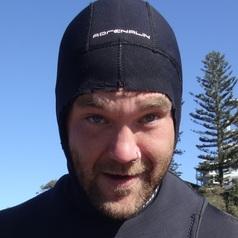
Jeremy Day
PhD researcher, University of Newcastle
Bsc. Marine Biology, James Cook University (2017)
Hons. Marine Science, University of Wollongong (2019)
PhD Candidate, University of Newcastle (completion in 2024)
Commercial skipper, marine engine driver grade 2,
Scientific diver and field researcher >10 yrs
Less ![]()
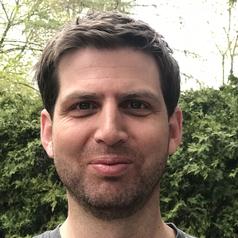
Jeremy deWaard
Adjunct Professor, Centre for Biodiversity Genomics, University of Guelph
Jeremy deWaard is the Associate Director for Collections at the Centre for Biodiversity Genomics at the University of Guelph in Guelph, Canada. He completed his undergraduate and MSc degrees in Guelph, followed by his PhD at the University of British Columbia. He is now responsible for leading a team of thirty staff and students, managing a natural history collection of nearly nine million invertebrate specimens, and overseeing the operations and research initiatives linked to the acquisition and processing of specimens for DNA barcode analysis. His research focuses on biological inventories, biosurveillance, protocol development, and the integrative systematics of terrestrial arthropods, particularly macromoths. He is an Adjunct Professor at the University of Guelph, a Subject Editor for The Canadian Entomologist, a Research Associate at the Smithsonian Institution, and a board member of the Arthropods Specialist Subcommittee for the Committee on the Status of Endangered Wildlife in Canada.
Less ![]()

Jeremy Hicks
Professor of Russian Culture and Film, Queen Mary University of London
Jeremy Hicks is a historian of Russian culture and film at QMUL. His research interests are in the history of documentary film in Russia and the former Soviet Union. He has also published on Soviet film during World War Two, representations of the Holocaust in Russian and Soviet film, the documentary film pioneer, Dziga Vertov and connections between Soviet film and humanitarian film
He received a PhD from SSEES-UCL in 2000, and has been teaching at Queen Mary since 1998.
Less ![]()

Jeremy Kiszka
Associate Professor, Institute of Environment, Coastlines and Oceans Division, Florida International University
Marine mammals are highly charismatic species. They feed at a variety of trophic levels, occur from coastal to open-ocean ecosystems, and are found across virtually all latitudes. Due to their high historical - and sometimes present-day - abundances, capability for large-scale movements and highly variable metabolic rates, they have the potential to affect the structure and function of ecosystems through a variety of mechanisms over both ecological and evolutionary time. They also face major conservation challenges at the global scale due to bycatch, overfishing, habitat destruction and climate change.
Dr. Kiszka is a community and behavioral ecologist who studies the ecological roles and importance of marine mammals in marine ecosystems. More specifically, he investigates how they use habitats and resources (their ecological roles) and how ecosystems can be affected by the presence of these animals, which includes their top down effects on resources and behavior, as well as nutrient dynamics. His work involves the use and development of new and innovative research tools and methods to study marine mammal ecology and conservation issues, particularly since these species are so challenging to observe. Through research and education, he also creates outreach tools and works on providing opportunities for students from minority groups and developing countries to build capacity.
Less ![]()

Jérémy Mandin
Postdoctoral researcher in anthropology and social science , Université de Liège
Less ![]()

Jérémy Puyraimond-Zemmour
Assistant spécialiste, Service de Diabétologie-Nutrition, Hôpital Bichat, AP-HP, Chargé de cours au sein du DU de nutrition, Université Paris Cité
Less ![]()
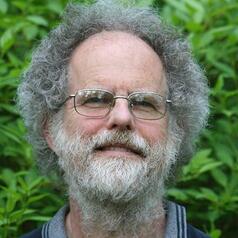
Jeremy Searle
Professor of Ecology and Evolutionary Biology, Cornell University
I was an undergraduate student at Oxford University UK, a graduate student at Aberdeen University UK, and a postdoc at Universities of East Anglia, Oxford and York UK. I've held faculty positions at Universities of York and Cornell.
I am interested in the construction of post-glacial small mammal communities and have studied the natural colonization history of European shrews, voles, mice and small carnivores, revealing a wide range of species- and lineage-specific responses in terms of source areas and pattern of spread. Unnatural colonization history (i.e. transport by humans) is also of interest to me, particularly the way that the phylogeography of small mammals transported by humans can inform about the history of the humans moving them. Those separate lineages that make up a species and which are formed in different places and colonize in different ways, are genetically differentiated to various degrees and may become separate species themselves. I am interested in the speciation process and the analysis of hybrid zones to inform about that. I have, in particular, studied the origin of chromosomally distinctive lineages, and the hybrid zones between those lineages, using shrews and mice as models.
I teach a variety of courses at Cornell including: BioEE 1780 Introduction to Evolutionary Biology and Diversity, BioEE 4500 Mammalogy and BioEE 4501 Mammalogy.
I am Leader for Diversity and Inclusion in EEB, chairing the department’s DEI committee and representing the department in college and university diversity and inclusion efforts.
Less ![]()

Jeremy Short
Professor and G. Brint Ryan Chair in Entrepreneurship, University of North Texas
Jeremy Short is the G. Brint Ryan Chair in Entrepreneurship at the University of North Texas. He is co-author of low-cost textbooks Mastering Strategic Management (with Dave Ketchen) and Principles of Management (with Talya Bauer and Berrin Erdogan). Short’s research bridges entrepreneurship, strategic management, organizational behavior, and family business domains. His current research focuses on crowdfunding, social entrepreneurship, role theories, and family business. He has published more than ninety articles in such journals as Strategic Management Journal, Strategic Entrepreneurship Journal, Organization Science, Personnel Psychology, Organizational Behavior and Human Decision Processes, Journal of Management, Journal of Business Venturing, Academy of Management Learning and Education, and Family Business Review, among others. He also coauthored a graphic novel textbook and the first Harvard Business School case in graphic novel format. Jeremy’s work has been highlighted in outlets such as Forbes, the WSJ, USA Today, Scientific American Mind, and Franchise Times. A recent study highlighting the citation count of scholarly publications placed Jeremy's scholarly impact among the top 2% of all management scholars in the world. A different list compiled by research.com (https://research.com/u/jeremy-c-short) names Jeremy among the top 550 scholars in business in management worldwide and number 251 in the U.S.
Less ![]()
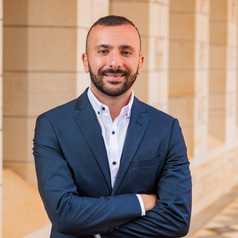
Jeremy Sleiman
Lecturer in Sport Management Australian College of Physical Education (ACPE) and Research Assistant Western Sydney University, Western Sydney University
Lecturer in Sport Management, Australian College of Physical Education, and Research Assistant, Western Sydney University"
Less ![]()
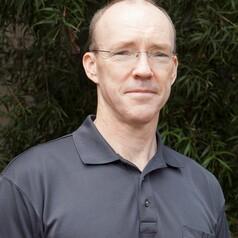
Jeremy Witchalls
Associate Professor in Physiotherapy, University of Canberra
Jeremy has been a clinical physiotherapist for over 30 years, with particular experience in musculoskeletal injuries. 20 years’ experience in clinical practice lead to a PhD investigating ankle proprioception, after which he continued a career pathway as a physioitherapy lecturer and Disipline Lead for Physiotherapy, and a researcher with University of Canberra Research Institute for Sport and Exercise. He also convenes a postgraduate course on injury prevention and performance health management relating to sports and tactical forces personnel.
Jeremy’s research focus includes; somatosensory perception (proprioception) in injury and performance, clinical interventions for musculoskeletal performance and injury, injury surveillance and prevention, and military human performance
Less ![]()
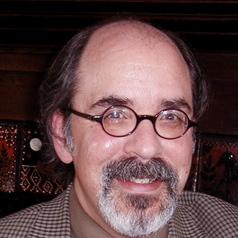
Jeremy P. Shapiro
Adjunct Assistant Professor of Psychological Sciences, Case Western Reserve University
Jeremy Shapiro is an adjunct assistant professor of psychological sciences at Case Western Reserve University and the author, most recently, of “Psychotherapeutic Diagrams: Pathways, Spectrums, Feedback Loops, and the Search for Balance.”
I am a consultant on outcome research, program development and evaluation, a psychotherapist, and a national trainer (over 200 one-day workshops in over 40 states). My recent books include a graduate school textbook, "Child and Adolescent Therapy: Science and Art, 2nd Edition," and "Psychotherapeutic Diagrams: Pathways, Spectrums, Feedback Loops, and the Search for Balance."
Less ![]()
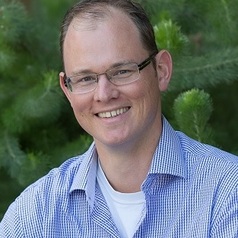
Jeroen van Boxtel
Associate professor, University of Canberra
Jeroen J.A. van Boxtel started with a master's degrees in Biology (Utrecht University) and Cognitive Sciences (Université Pierre et Marie Curie & Collège de France, France), after which he completed his PhD at Utrecht University, the Netherlands, at the cross-disciplinary Helmholtz Institute in 2008. After obtaining his PhD, he moved to the California Institute of Technology (Caltech), where he worked for two years on the relationship between attention and consciousness with Prof. Christof Koch. In 2010, he moved to the University of California, Los Angeles, to work on questions related to human action perception and attention, and the link to Autism Spectrum Disorders. In 2013, Jeroen van Boxtel was recruited to Monash University where he also headed the Cognitive Neuroimaging group at Monash Biomedical Imaging. He currently works in the Discipline of Psychology at the University of Canberra, and focuses on the negative effects of attention, the link between attention and conscious perception, the influence of attention on biological motion perception, and the influence of noise on visual processing.
Less ![]()
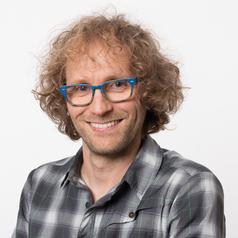
Jérôme Comte
Associate professor, Centre Eau Terre Environnement, Institut national de la recherche scientifique (INRS)
J'ai obtenu mon doctorat en biologie à l'université du Québec à Montréal en 2010. J'ai par la suite réalisé un premier stage postdoctoral à Uppsala en Suède (2010-2012) et un second à l'université Laval à Québec (2012-2016).
Je suis professeur agrégé à l'Institut national de la recherche scientifique (INRS), Centre Eau-Terre-Environnement à Québec. Je suis un écologiste microbien qui s'intéresse à l'identification des processus qui façonnent les communautés microbiennes. Mes recherches portent sur les aquifères, les lacs, les étangs, les rivières, les sols et les sédiments des régions tempérées, boréales et arctiques et combinent des approches expérimentales et de terrain.
Avant de rejoindre l'INRS, j'ai travaillé comme chercheur scientifique à Environnement et Changement Climatique Canada (ECCC) à Burlington, Ontario, où j'ai dirigé le laboratoire de génomique axé sur l'étude des efflorescences d'algues et de cyanobactéries nuisibles dans les Grands Lacs canadiens.
Less ![]()
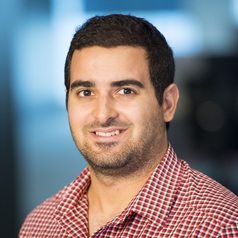
Jerome N Rachele
Dr Jerome Rachele is a Research Fellow at the Institute for Health and Ageing, Australian Catholic University and the NHMRC Centre of Research Excellence in Healthy, Liveable Communities. His research centres on investigating causal relationships between built environment and health and wellbeing outcomes using data from longitudinal studies and natural experiments.
Less ![]()
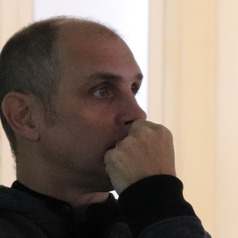
Jérôme Queste
Sociologue, Cirad
Jérôme Queste had a first batch of academic education in applied mathematics and information sciences he studied in Ecole Polytechnique and ENSTA (now Université Paris-Saclay). Later on, his field research led him to invest in social sciences to better understand the way social interactions contribute to change. He ended up defending a PhD in social sciences entitled "The effects of consultation".
Jérôme Queste has been working in Madagascar for 20 years, coodrinating research on "How to combine conservation and valuation of forest biodiversity in Madagascar"
Less ![]()
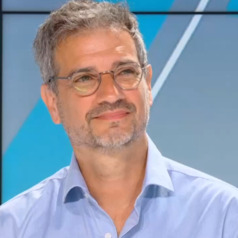

Jerry Anderson
Dean and Professor of Law, Drake University
Jerry Anderson is Dean of the Drake University Law School and Richard M. and Anita Calkins Distinguished Professor of Law. His areas of expertise include Administrative Law, Environmental Law, Natural Resources Law, and Property.
Less ![]()

Jerry Kang
Distinguished Professor of Law and (by courtesy) Asian American Studies; Founding Vice Chancellor for Equity, Diversity and Inclusion (2015-20), University of California, Los Angeles
Jerry Kang is Distinguished Professor of Law at UCLA. He graduated magna cum laude from both Harvard College (physics) and Harvard Law School, where he was a supervising editor of the Harvard Law Review. After clerking for the Ninth Circuit Court of Appeals, he started his professorship at UCLA in 1995. A leading scholar on implicit bias and critical race studies, Professor Kang collaborates broadly across disciplines and industries on scholarly, educational, and advocacy projects. An inspiring teacher, he has received UCLA’s highest recognition: the Eby Art of Teaching Distinguished Teaching Award. During 2015-20, he served as the University’s Founding Vice Chancellor for Equity, Diversity and Inclusion.
Less ![]()
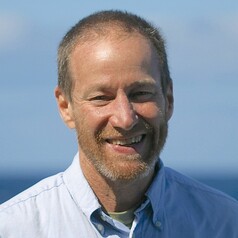
Jerry McManus
Professor of Earth and Environmental Sciences, Columbia University
Jerry McManus is a Professor of Earth and Environmental Sciences and a paleoceanographer. His research includes using deep-sea sediments to reconstruct past changes in the Earth’s climate and the large-scale ocean circulation, with a special focus on the role that the ocean plays in abrupt climate change. He has spent nearly a year of his life at sea and is involved in research projects in far-flung locales in every ocean basin. After 10 years at Woods Hole Oceanographic Institution, he returned to Columbia and Lamont-Doherty Earth Observatory in 2008.
Less ![]()
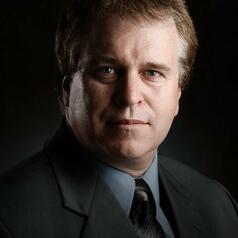
Jerry Paul Sheppard
Associate Professor of Business Administration, Simon Fraser University
My research interest deals principally with the theme of "why do things seem to go wrong?" My research involves global environment, institutional failings stemming from corporate governance issues, industry sector change, organizational failure, in-apt individual decision making failures and decision failures.
Less ![]()
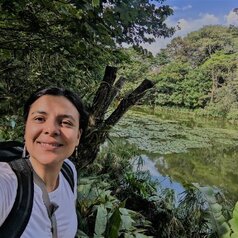
Jesica Lopez
PhD Candidate, Centre for Environmental and Climate Research, Lund University
I am a PhD student in Sustainable Land Use at the Centre for Environmental and Climate Research, CEC. I've been living in the Nordics since 2009. I have a BSc in Environmental Biology at Jorge Tadeo Lozano University in Bogotá (Colombia) and a MSc in Forest and Nature Management at the University of Copenhagen. After my studies, I’ve gained experience in the private and public sector in Denmark as an ecosystem services consultant at consultancy firm COWI A/S Denmark, and ecosystem service specialist at Climate-KIC Nordic. I was also Project coordinator/Research assistant at the Department of Food and Resource Economics of the University of Copenhagen.
The overarching aim of my PhD study is to improve our systems' approach understanding the mechanisms behind the land use transformation. More specifically, the cumulative effects of extensive cattle ranching into tropical forests in protected areas, in order to implement effective and integrative land use planning in the northwest of Amazon region of Colombia. I am combining the systems approach with the use of Causal Loop Diagrams (CLD) together with remote sensing and GIS tools. The contribution of the study seeks to increase our knowledge to ensure pathways to reduce the alarming deforestation, create sustainable food systems and tackle the loss of biodiversity in this part of the Amazon.
As part of the Agenda 2030 graduate school at Lund University my research interests within the SGDs are focused on the nexus between the competition of land for food production (i.e., livestock) and the pressure on biodiversity and ecosystem services in protected areas with tropical rainforests.
Less ![]()

Jesmen Mendoza
Psychologist and Faculty Member, Toronto Metropolitan University
I am an Instructor at the University of Toronto's Ontario Institute for Studies in Education, where I teach graduate students in the Department of Applied Psychology & Human Development.
I am also at Toronto Metropolitan University (TMU), providing therapy to students, training psychology residents and practicum students, and consulting with faculty and staff on complex student issues.
Between 2010 and the early part of 2022, I've have been a member of the University's Student Case Management Team which assists in supporting students of concerns and those students in conflict with the University's conduct and sexual violence policies. While on that team, I've provided risk assessments and disciplinary counselling to students who have been found to have caused harm. I'm also an Associate of Possibilities Seeds, a social change consultancy dedicated to gender justice and equity, since 2018. As an Associate of Possibilities Seeds, I've provided leadership and scholarship in their community of practice with respect to people who have caused harm, and created a number of policy response and support tools for effectively responding to campus sexual and gender-based violence for Canadian Post-Secondary Institutions. Prior to coming to TMU and since 2000, I've provided clinical support in a variety of social service and criminal justice settings, and apply an integrated, inclusive and positive psychology approach to the work I provide.
Less ![]()
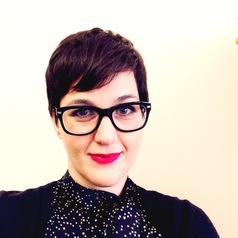
Jess Carniel
Professional Memberships:
Secretary of the Cultural Studies Association of Australasia
Australian and New Zealand Shakespeare Association (member)
Research Interests:
Australian and global migration, multiculturalism, race and ethnicity, cultural studies, sport (esp. soccer), popular culture, Australian studies, Eurovision, gender studies.
Most Recent Research Outcomes:
"Skirting the issue: finding queer and geopolitical belonging at the Eurovision Song Contest," Contemporary Southeastern Europe, vol. 2, no. 1 (2015), pp. 136-154.
Review of Tony Bennett (ed.), Challenging (the) humanities, (Melbourne: Australian Scholarly Publishing, 2013), Queensland Review, vol. 21, no. 2 (December 2014), pp. 235-236.
“Of Nerds and Men: Dimensions and Discourses of Masculinity in Nerds FC,” in The Sports Documentary: Critical Essays, eds Zachary Inglis and David Sutera, Lanham, MD: Scarecrow Press, 2013.
“In the spirit of reconciliation: migrating spirits and Australian postcolonial multiculturalism in Hoa Pham’s Vixen,” in Spectral Identities: Ghosting in Literature and Film, eds Melanie Anderson and Lisa Sloan, Newark: University of Delaware Press, 2013.
Less ![]()
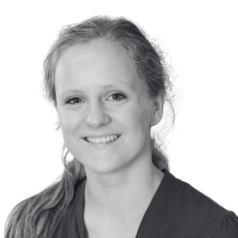

Jess Hardley
Research Assistant in Criminology, The University of Melbourne
Dr Jess Hardley (she/her) is an intersectional feminist, embodiment and mobile media scholar. She holds a PhD in Media and Communication from RMIT University and a joint Research Master’s Degree in Gender Studies from Utrecht University and Central European University. Her research primarily focuses on smartphones, gendered experiences of urban space, and experiences of safety and risk. She has been researching and teaching across Media Studies, Digital Cultures, Internet Studies, Cultural Studies and Gender Studies for over a decade. She currently works as a Research Assistant in Criminology at The University of Melbourne on a project exploring victim-survivor experiences of street harassment.
Less ![]()
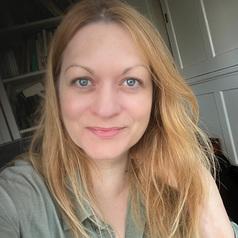
Jess Scott-Lewis
PhD Candidate, Sheffield Institute of Social Sciences, Sheffield Hallam University
Jess Scott-Lewis is a Forensic Psychology PhD Researcher at Sheffield Hallam University. Her current research explores the use of knife imagery in anti-knife crime interventions and the emotional and cognitive effect on young people. Other research interests include the use of technology in education including virtual reality, and the impact of social context on life outcomes for young people.
Less ![]()
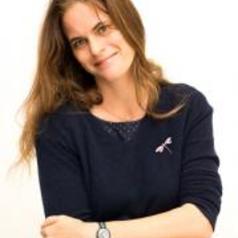
Jess Auerbach Jahajeeah
Associate Professor, Graduate School of Business, University of Cape Town
Qualifications:
PhD Stanford Anthropology, MSc Oxford Forced Migration, BSocSci Hons-UCT
Expertise:
Angola, Mauritius, contemporary ethnography, inclusive innovation, higher education
Less ![]()

Jessa Rogers
First Nations Senior Research Fellow, Queensland University of Technology
Dr Jessa Rogers CF GAICD MAIATSIS is a Wiradjuri researcher, educator and board director with over fifteen years of teaching experience in schools and tertiary education. Jessa’s research focuses on Indigenous research methods and methodologies, and Indigenous peoples’ experiences of education.
Jessa holds positions of First Nations Senior Research Fellow, and Australian Research Council (ARC) Discovery Early Career Research (DECRA) Fellow (DE230100140) in the Digital Media Research Centre (DMRC) at QUT. She was the founding principal of Australia’s first boarding school for Indigenous young mothers and babies in Far North Queensland. She has been a Fulbright Scholar (Harvard University), a Churchill Fellow, and was awarded a National NAIDOC Award for her contributions to Indigenous girls’ education. Jessa’s research draws attention to the voices of Indigenous students, with a specific focus on Indigenous boarding school experiences in Australia, New Zealand, Hawaii and mainland USA.
Jessa is the Managing Director of Baayi Consulting. She serves on the Nursing and Midwifery Board of Australia, St Philip's College (Alice Springs), the Wesley Mission Queensland Board, and the Pearson First Nations Advisory Board. Jessa is a member of the ACCAN Indigenous Advisory Group, and serves on the Aboriginal Australian Studies Journal Editorial Board, among other boards and committees.
Less ![]()
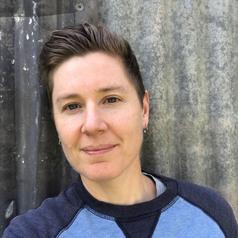
Jesse Boylan
Lecturer and PhD student, RMIT University
Jesse Boylan is an artist and writer living on Dja Dja Wurrung country in Central Victoria. They teach research-based approaches to documentary as a sessional lecturer within the School of Art at RMIT, and they are a PhD candidate researching the role of art in addressing slow climate emergencies and global atmospheric change. They have published several recent essays and articles and worked briefly as a journalist for the Inter Press Service in East Africa and Asia-Pacific, 2009-2010.
Less ![]()

Jesse Burkhardt
Associate Professor of Energy Economics, Colorado State University
Jesse Burkhardt, Ph.D., is an Associate Professor in Agricultural and Resource Economics at Colorado State University. His research interests include energy economics, air pollution, climate economics and industrial organization.
Less ![]()

Jesse Cale
Associate Professor of Criminology, Deputy Director Research (Griffith Youth Forensic Service), Griffith University
Less ![]()
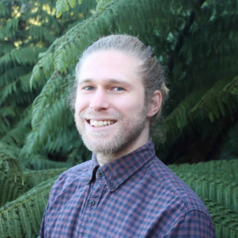
Jesse Kearse
Postdoctoral Researcher in Seismology, Kyoto University
Jesse is a Postdoctoral Researcher at Kyoto University, Japan, and Geoscience Researcher at Te Herenga Waka - Victoria University of Wellington. Jesse's research focus includes the source physics of large earthquakes, linking geophysical models of earthquake with geological observations of faults, and using remote sensing techniques to measure the deformation of the solid Earth surface.
Less ![]()
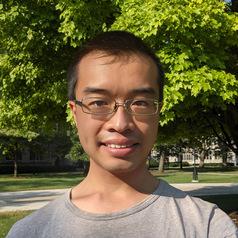
Jesse Liu
Research Fellow in Physics, University of Cambridge
Junior Research Fellow in Physics at Trinity College and postdoctoral researcher at Cavendish Laboratory, University of Cambridge.
Less ![]()
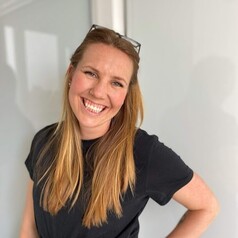
Jesse Porter
Research Assistant, Faculty of Applied Health Sciences, Brock University
Jesse is a Research Assistant at Brock University, soon to start her PhD at the University of Toronto. Her research interests include gender equity and coaching and Safe Sport. Jesse has coached the University of Toronto Women's Lacrosse team for the past 5 years, as well a coaching the National Chinese Women's Lacrosse team and a variety of youth teams.
Less ![]()

Jesse Rhoades
Associate Professor of Education, Heath & Behavior, University of North Dakota
Less ![]()
- Market Data























